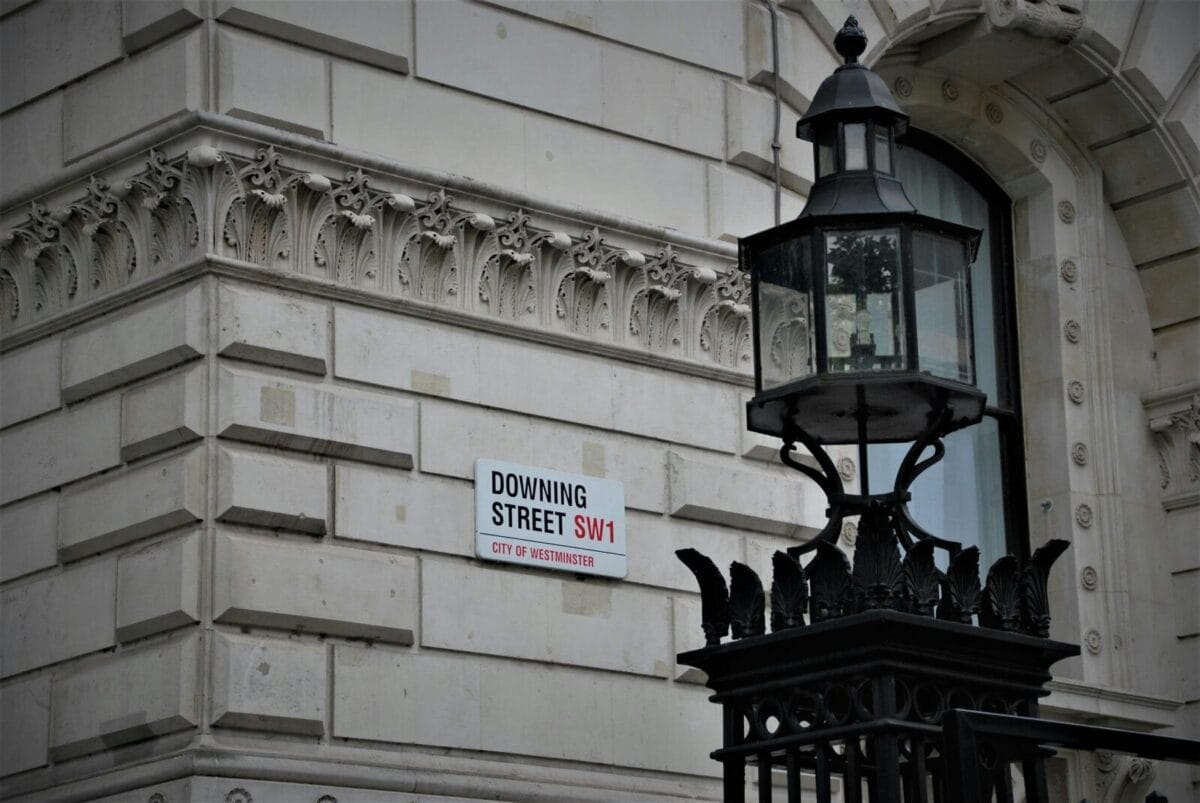The UK has escaped recession by the skin of its teeth and following the the latest UK GDP data industry experts have reacted.
Jeremy Batstone-Carr, European Strategist at Raymond James Investment Services: “Today’s figures confirm that the UK has escaped recession by the skin of its teeth in 2022. With December’s contraction of 0.5%, skirting recession by the slimmest of margins, the UK has achieved a minor economic victory. “
“November’s 0.1% growth came as a significant surprise, with England’s footballers providing sufficient cheer to temporarily offset the negative effects of elevated inflation and rising rates. But the footballers have now packed up and come back home, bringing an end to this economic reprieve.
“We are still in for the downturn which so far has been barely kept at bay. It will be shorter and shallower than previously thought, as per the Bank of England’s forecasts. The lagged impact of earlier base rate increases combined with additional policy tightening will ensure it happens. However, whether we are officially in recession will not make much difference to most people – it will simply feel like a continuation of the present sluggishness and cost-of-living woes.”
Richard Carter, head of fixed interest research at Quilter Cheviot:“While the numbers may appear positive for now, overall the economy is flatlining and it is difficult to see that changing in the short-term. As such, we are still likely to be in a recession at some point during 2023 – which is still expected to be long and shallow – so these figures do not provide a huge amount of comfort.
“The Bank of England may well feel vindicated that the economy is so far surviving interest rates, but the toll on households has still been huge due to rising energy bills and high inflation, while the retail and hospitality sectors have had to deal with significant strike action.
“These issues are yet to go away, and in reality are likely to hang around for some time yet. As such, it is no surprise to see the IMF predict the UK to be the weakest developed economy in 2023.
“With the spring budget fast approaching, there is significant pressure on the shoulders of Rishi Sunak and Jeremy Hunt to find ways to stimulate growth.”
John Glencross, CEO and Co-Founder of Calculus, said: “Today’s news will be welcomed by investors and advisers as the economy kicks on from the sluggish growth and high inflation that we saw last year. The UK has shown remarkable resilience despite significant uncertainty caused by rising interest rates, supply chain issues, increases in wages and a worsening cost-of-living crisis. Demand for growth capital remains at unprecedented levels and there is now a real opportunity to provide meaningful support to a new generation of UK companies driving the digital revolution forward, improving healthcare and creating jobs and opportunities throughout the country.
“Knowledge intensive companies within technology and healthcare – two of the UK’s fastest growing sectors – operate in an exciting investment landscape due to the UK’s strong presence of research universities, robust Government support, and thriving M&A market. The UK’s technology sector leads the European market, having raised double the amount of VC funding of any other country in 2022. Meanwhile, the UK healthcare sector has, in recent years, been a world leader in fighting pandemics and advancing patient care.
“Calculus, which established the first approved EIS fund 24 years ago, launched a Knowledge Intensive Enterprise Investment Scheme (EIS) Fund in October to provide investors with the opportunity to not only benefit from the diversified, strong performing and tax efficient nature of its products, but to also support innovative UK companies with a societal purpose and impact with at least 80% of the fund’s capital invested into businesses carrying out research and development to create new intellectual property.”
Melanie Baker, senior economist at Royal London Asset Management, said:“The UK escaped being in technical recession with two consecutive quarters of negative GDP growth in the second half of last year, but by the slimmest of margins. The UK economy didn’t shrink in Q4, but neither did it grow. The bigger point is that this stagnation isn’t new. The level of GDP hasn’t really grown since the end of 2021.
“Q4 itself was a bit of a ‘mixed bag’. Consumer spending grew in Q4, but barely. Business investment was surprisingly strong though. It will be interesting to see if that gets revised down in later releases. It isn’t obvious why business investment would have grown so much given interest rate rises and how soft some of the business survey indicators have been.
“Weakness in the economy in December will partly reflect strike activity, but cost-of-living pressures will likely have also played a role.
“The UK continues to face a long list of challenges and I don’t expect the economy to escape a technical recession altogether”.
Isabel Albarran, Investment Officer at Close Brothers Asset Management: “The GDP data released today shows the UK continues to narrowly avoid falling into recession. It comes as little surprise given the strong data in November, but forecasts for the year ahead are lacklustre. Luckily for investors, you don’t need the UK economy to be doing well for the UK stock market to do well and, in fact, it is often the opposite. A weak pound is supportive for British companies with large international footprints, and the FTSE 100 has duly been hitting record highs.
“Looking ahead to the rest of the year, the labour market remains surprisingly resilient, which should support consumer confidence. However, as it stands, consumers don’t appear to be upbeat, looking at recent money and credit data. Credit growth has been sluggish, and households are saving, which suggests that consumers are not in the mood to raid the piggy bank to supplement negative real income growth. While a recession is likely, we expect it to be mild compared to prior recessions, and the consumer should recover in the second half of the year.”
Chris Beauchamp, Chief Market Analyst at IG Group: “The UK has skirted a recession by the skin of its teeth. But it’s not much cause for rejoicing – things being ‘less bad’ will hardly give a reason for politicians or hard-pressed workers to open any kind of fizz. The economy is still smaller than it was and inflation remains strong – there is still the real possibility that we go into a recession in the next 12 months.“









![[UNS] tax](https://ifamagazine.com/wp-content/uploads/wordpress-popular-posts/787063-featured-300x200.webp)
![[uns] office, appointment, staff](https://ifamagazine.com/wp-content/uploads/wordpress-popular-posts/787084-featured-300x200.webp)




